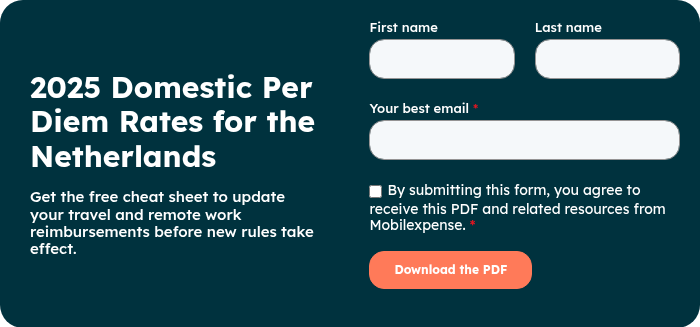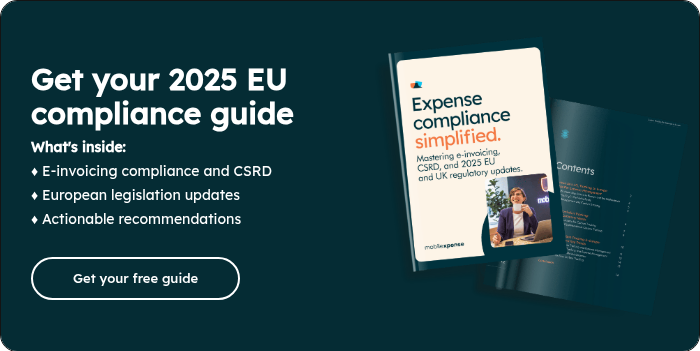Introduction
As we welcome 2025, businesses in the Netherlands should understand how to keep up with compliance regulations.
These are the top compliance trends in the Netherlands for 2025 and beyond:
- Expanded investment screening laws: According to Reuters, new regulations will cover critical technologies like AI and biotech to safeguard national security.
- Updates on minimum wage and social payments: Blue Lynx informs us that minimum wages will increase. Payroll systems will need changes to meet the new levels.
- Relaxed corporate tax interest deduction rules: Businesses will benefit from higher allowable deductions on interest expenses.
- Stricter environmental regulations: According to Climate minister Sophie Hermans, her government remained committed to the climate goals. This includes banning all CO2 emissions by 2050. She promised to deliver additional measures in the second quarter of 2025.
- Advancements in financial services compliance: According to Protiviti, key focus areas across Europe include AI, fraud prevention, operational resilience, and privacy.

What do compliance trends mean for Dutch businesses in 2025?
For Dutch businesses, these trends signal a need for proactive adaptation to evolving compliance requirements.
- Companies must prepare for stricter oversight in technology investments and environmental practices while benefiting from tax relief opportunities.
- Adjusting payroll systems to meet rising wage thresholds and ensuring robust financial compliance frameworks.
- Embracing these changes ensures regulatory alignment and positions businesses to remain competitive in a more sustainable, secure, and innovation-driven market.
The home working allowance in the Netherlands
The Dutch government introduced the home working allowance on 1 January 2022. The aim was to compensate employees for expenses incurred while working from home. Initially set at €2,00 in 2022. Then it changed to €2,15 per day in 2023, and the allowance increased to €2,35 in 2024. It now stands at €2,40 per day as of 1 January 2025.
Benefits of home working
In 2024, companies like Amazon and Google started returning to the office for 5 days a week. However, a survey from Resume Builder shows that the 5-day commute is no longer popular.
An increase in remote work would mean several advantages, such as:
- Reduced carbon footprint due to fewer car trips.
- Time savings by avoiding lengthy commutes.
- Improved work-life balance, allowing employees to handle personal matters while working remotely.
- Increased productivity with fewer workplace distractions.
However, employers must balance these benefits with the social aspects of office-based work. Hybrid models combining remote and in-office work seem to be the future of employment contracts.
Is the home working allowance compulsory?
Employers can decide whether or not to grant their employees a home working allowance. However, as an employer, it is a relatively low-cost way of keeping your workers satisfied.
Whatever you decide to do, be transparent and include your decision in your expense policy.
What does the home allowance cover in the Netherlands?
The home working allowance is designed to offset:
- Higher utility costs for home offices (electricity, heating).
- Increased internet bandwidth for virtual meetings.
- Consumables such as coffee or tea.
Employers in the Netherlands can provide this tax-free allowance without deducting payroll taxes or social security contributions. For further information, visit the Business.gov.nl guide.
Administration tips:
Employers can handle the allowance in two ways:
- Monthly payouts: Based on the number of home working days.
- Fixed monthly allowance: Agreed upon with employees based on their average work-from-home days.
For automated spend management solutions, tools simplify tracking and compliance. Mobilexpense is has digital
expense app that covers all the regulatory requirements of the Dutch market. Our experts are ready to help you implement the home working allowance in your solution.
Can you grant a travel allowance and home working allowance on the same day?
You cannot grant employees both a travel allowance and a home working allowance for the same day. This is a good consideration when defining expense policies.
For example, if an employee is working from home for the day and being compensated for it, they cannot simultaneously claim an allowance for commuting that day.

Daily allowances (per diems) for 2025 in the Netherlands
Per diem rates are fixed. They also depend on the destination and duration of travel. As with most countries, per diems are not considered part of a salary. Therefore, are not taxable for employees up to the maximum set amount.
Domestic daily allowance rates in 2025:
Incidental expenses:
- Small daily expenses: €7,02
- Small evening expenses: €20,95
Meal expenses:
- Breakfast: €14,87
- Lunch: €21,40
- Dinner: €32,37
- Accommodation, excluding breakfast: €152,19
For a detailed overview of updates in the Netherlands, download the PDF: Bedragen CAO Rijk 2024-2025 per 1 januari 2025.
2025 Mileage allowance updates in the Netherlands
The tax-free mileage allowance remains at €0,23 per kilometre in 2025. This is following the increase from €0,21 per kilometre in 2023 and €0,23 in 2024. This gradual increase reflects the rising costs of commuting, driven by fuel price hikes.
Key points for employers:
- Employers may choose to reimburse employees at or below the maximum rate.
- State Secretary Marnix Van Rij encouraged companies to adopt new reimbursement caps. This will help employees with their commuting costs.
- The tax authorities consider any reimbursement above €0,23 per kilometre as taxable income.
Werkkostenregeling (WKR): maximising allowances
The Werkkostenregeling (WKR) allows employers to provide tax-free reimbursements, benefits, and provisions within a discretionary scope (vrije ruimte). This scheme includes:
- Home working and travel allowances.
- Benefits such as work clothing or refreshments.
- Specific exemptions like costs for certificates of good conduct.
- Employers exceeding their discretionary scope must pay a final levy (eindheffing).
Simplifying compliance with digital tools
Compliance requirements can take a lot of time to manage, but digital solutions like Mobilexpense help automate:
- Expense reporting aligned with Dutch tax regulations.
- Home working and mileage allowances.
- WKR allowances and exemptions.
To ensure compliance, your business can save money and reduce paperwork. You can do this by:
- Using tax-free allowances
- Updating expense rules
- Investing in automation tools
Share this
You may also enjoy
these related stories
/Listing%20Images/Higher%20Tax-Free%20Mileage%20Allowance%20From%202023%20in%20the%20Netherlands%20%E2%80%93%201.png)
Best Expense Management Solutions for the Netherlands
.png)
Best Expense Management Solution for the United Kingdom
/Listing%20Images/Internationale%20Rechnung%20erstellen%20listing.png)
Expense Management Trends for 2026: The Rise of Automation and AI in Expenses
/Listing%20Images/Updated%20VAT%2c%20Mileage%20and%20Allowance%20Rates%20for%202024%20%E2%80%93%201.png)

